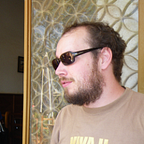Uh Oh, a Rebel Group in Mozambique Just Canceled a 20-Year-Old Peace Deal
Thankfully, RENAMO probably has no interest in actually going back to war
“Peace is over in this country,” declared RENAMO spokesperson Fernando Mazanga, after government forces invaded the resistance movement’s main military base in the central part of Mozambique. The movement’s leader, Afonso Dhlakama, escaped together with his fighters before the attack and is now in hiding.
The whole affair has something farcical about it, considering that Mozambique’s civil war ended 21 years ago with the signing of a peace agreement in Rome between RENAMO’s leadership and the government, now and then dominated by the FRELIMO party.
Over the past two decades, the cessation of violence was highly beneficial for Mozambican society, allowing the country to become a major coal exporter and setting it on the path to exploit some of the largest natural gas deposits on earth.
Guerrillas make bad politicians
But RENAMO’s bush guerillas never really adapted to civilian life. The movement was founded as an intervention force against the marxist FRELIMO party ruling Mozambique after independence and was first supported by the dictatorship of Rhodesia (now Zimbabwe), later by apartheid South Africa.
This external support collapsed, as did the ideological motivation of the movement. The end of the Cold War made this kind of conflict irrelevant, as RENAMO’s opponent FRELIMO morphed from a staunchly Marxist party to an investment-seeking government, largely aligned with the liberal consensus of the world economy.
RENAMO was unable to manage this change, on a political as well as personal level. The movement’s leader Dhlakama continued to enforce tight discipline and rigid hierarchy, allowing no challenge to his personal position. This may work for a military movement, fighting a guerilla war, but it left RENAMO woefully unprepared for the reality of political competition.
RENAMO never developed a political agenda for peacetime politics, apart from demanding a share of the country’s rising wealth for its leaders and veterans. Competent and charismatic members were seen as a threat to Dhlakama’s leadership and forced out of the organization.
This cost RENAMO dearly in the country’s election. From its high of two million votes in 1999, the movement’s support at the polls was reduced to 650,000 in the span of a decade. Today, FRELIMO enjoys a two-thirds majority in parliament and RENAMO controls no municipalities or mayorships in the country.
How to make yourself irrelevant
Part of the problem is also the refusal of RENAMO’s leadership to engage with the political processes of a multi-party democracy. Some of the movement’s grievances are legitimate, like the challenge to the electoral law — which favours FRELIMO — or the growing concentration of wealth in the hands of a few.
But Dhlakama never managed to effectively use political negotiation to influence these practices, instead relying on an uncompromising stance, maximalist demands and political threats.
Combined with a steadily weakened political base, RENAMO was made political irrelevant by this strategy. And instead of changing his approach, Dhlakama doubled down, first moving from the capital to his home province of Nampula and later to RENAMO’s wartime base of Santungira in the remote bush near Gorongosa.
To make up for political weight it lost, RENAMO also returned to using violence as leverage. Its veteran fighters started to attack police and military personnel, as well as the country’s main north-south road, claiming several dead on both sides. The government reacted with increasing the presence of the military in the area around Santungira and finally surrounding and storming the base on Monday.
Too old for war, too incompetent for peace
The risk of a return to full-scale civil war is slim, even though the latest escalation of the conflict is worrying. Neither the government military nor RENAMO are prepared for large-scale hostilities, with RENAMO’s fighters and leaders and their weapons aging and with the movement lacking external support. Neither Mozambicans nor governments in the region have any appetite for violent conflict.
But even small-scale guerrilla-style attacks could jeopardize Mozambique’s progress. The FRELIMO government will need to look for ways to bring RENAMO back into the fold, possibly by simply buying its key leaders off.
It should also take care to not use this opportunity to grab even more of the country’s political space and corresponding wealth and leave room for legitimate opposition. Otherwise the government risks alienating large parts of its population, increasing the risk of a legitimate threat to the country’s stability.
Sign up for a daily War is Boring email update here. Subscribe to WIB’s RSS feed here and follow the main page here.
